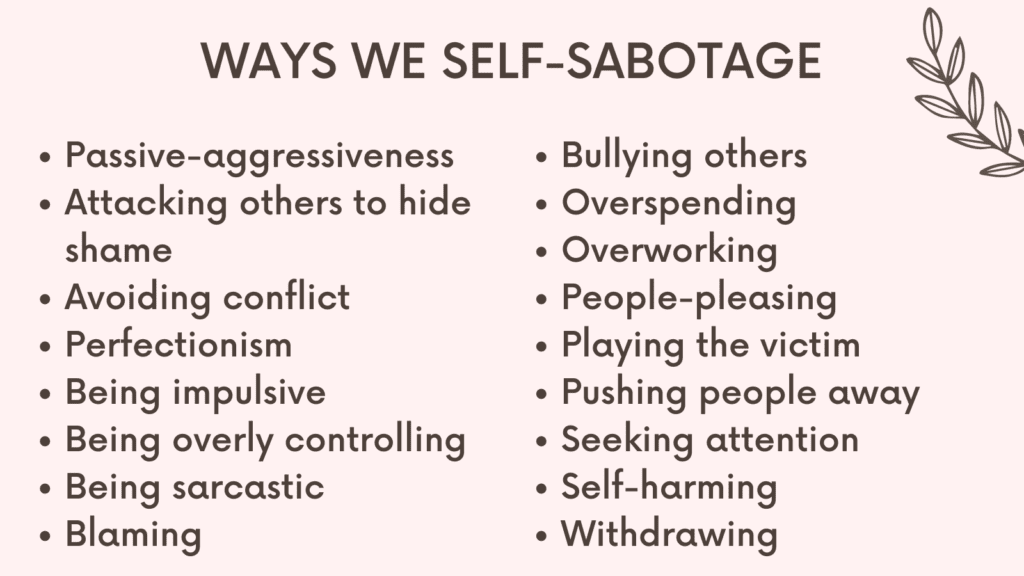Feeling like a victim can trap you in a cycle of negativity, preventing you from achieving your full potential.
This mindset can stem from various setbacks, disappointments, and hurts.
However, it’s essential to recognize and break free from this mentality to lead a more fulfilling and empowered life.
In this blog post, we will discuss five ways to identify the victim mindset and provide five practical solutions to overcome it.
Recognizing the Victim Mindset
Understanding whether you have fallen into a victim mindset is the first step towards change. Here are five signs that you might be stuck in this mentality:
1. Persistent Negativity: If most of your thoughts and comments have a negative tone, and you feel that life has dealt you an unfair hand, you might be trapped in a victim mindset.
2. Constant “Why” Questions: Frequently asking yourself questions like “Why does everything in my life have to be hard?” or “Why can’t people just leave me alone?” indicates a sense of helplessness.
3. Ruminating: Engaging in constant overthinking or ruminating about past events and how things never seem to work out for you is a sign of victim mentality.
4. Low Self-Esteem: Feeling like you are your own worst critic, thinking you are damaged goods, and believing you don’t deserve good things in life are all indicators.
5. Resentment and Anger: Experiencing frequent anger and resentment towards others, especially when they achieve success or happiness, is a clear sign of a victim mindset.
Related: Top 10 Ways To Stop Wallowing In Self Pity
Breaking Free from the Victim Mindset
Overcoming the victim mindset requires conscious effort and practice. Here are five solutions to help you break out of this negative pattern:
1. Build Confidence with Small Achievements
Start by setting small, achievable goals.
Think of it like beginning with a simple puzzle and gradually moving to more complex ones.
Success, even in small tasks, helps retrain your mind to see that you can accomplish things.
Reflect on these small successes to build momentum for larger goals.
Example: If you feel like you never succeed at anything, set a goal to complete a small daily task, such as organizing a drawer or going for a short walk. Celebrate your success and build on it.
2. Focus on Giving to Others
Shift your focus from your needs to helping others.
This approach can help reduce feelings of neediness and disappointment.
By meeting someone else’s needs, you gain a sense of purpose and satisfaction, which can bolster your self-esteem and protect against future hurts.
Example: Volunteer at a local charity or help a neighbor with a task. The act of giving can create a sense of fulfillment and reduce feelings of victimization.
Related: How To Break Generational Trauma? 5 Steps To Release Trauma & End Self-Sabotage
3. Keep a Gratitude Journal
Creating a gratitude list can change your perspective from focusing on what you lack to appreciating what you have.
Regularly writing down things you are grateful for can help remind you of the positives in your life, especially during tough times.
Example: Each evening, write down three things you are grateful for. These can be as simple as a pleasant conversation or a beautiful sunset. Review your list when you start to feel overwhelmed by negativity.
4. Seek Closure and Forgiveness
Addressing past hurts and forgiving yourself or others is crucial for moving forward.
Understanding the patterns that lead to poor decisions can help you break free from the cycle.
This process might require the help of a therapist or a trusted friend.
Example: If you often trust the wrong people, work with a therapist to understand why and develop strategies to make better decisions in the future.
Related: Best 21 Self Sabotage Journal Prompts
5. Take Responsibility for Your Decisions
Recognize that no one can make you feel a certain way without your consent. If certain people or situations consistently bring you down, limit your exposure to them and set emotional boundaries to protect yourself.
Example: If a family member’s criticism affects you deeply, try to reduce contact or set boundaries around the topics you discuss. This helps maintain your emotional well-being while still managing necessary relationships.

Conclusion
Breaking free from the victim mindset is a challenging but rewarding journey.
By recognizing the signs and actively working towards change, you can reclaim control over your life and build a more positive, empowered future.
Remember, this process takes time and effort, but each step you take will make it easier to overcome the negativity and embrace a healthier mindset.



